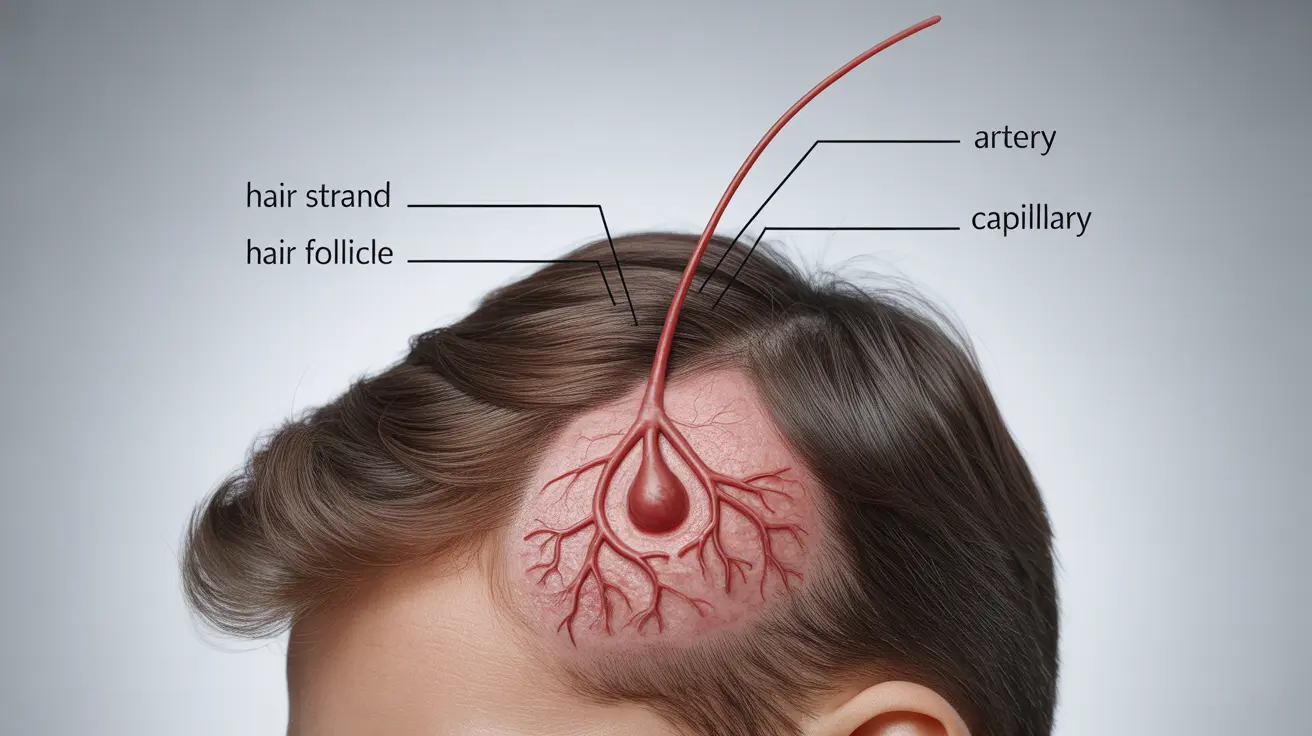Living with diabetes involves managing various health challenges, and one less commonly discussed complication is its potential impact on hair health. The relationship between diabetes and hair loss is complex, affecting many individuals who struggle with blood sugar management. Understanding this connection is crucial for both prevention and treatment.
In this comprehensive guide, we'll explore how diabetes can lead to hair loss, the underlying mechanisms involved, and what steps you can take to maintain healthy hair while managing diabetes.
How Diabetes Affects Hair Growth
Diabetes can impact hair growth through several mechanisms, primarily related to blood circulation and nutrient delivery to hair follicles. High blood sugar levels can damage small blood vessels throughout the body, including those that supply nutrients to hair follicles. This reduced blood flow can significantly impact the hair growth cycle.
The normal hair growth cycle consists of three phases: growth (anagen), regression (catagen), and resting (telogen). Diabetes can disrupt this cycle, potentially leading to increased hair shedding and slower regrowth.
Common Causes of Hair Loss in Diabetes
Impaired Blood Circulation
When diabetes affects blood vessels, it can lead to reduced oxygen and nutrient delivery to hair follicles. This nutritional deficit can cause hair follicles to enter the resting phase prematurely, resulting in increased hair shedding.
Hormonal Imbalances
Diabetes can affect hormone levels in the body, particularly those involved in hair growth regulation. These hormonal fluctuations may contribute to both temporary and permanent hair loss patterns.
Autoimmune Responses
People with Type 1 diabetes are more susceptible to autoimmune conditions that can affect hair growth, such as alopecia areata. These conditions can cause patches of hair loss or more widespread thinning.
Managing Blood Sugar to Protect Hair Health
Maintaining stable blood sugar levels is crucial for preventing diabetes-related hair loss. Good glycemic control can help:
- Improve circulation to hair follicles
- Reduce inflammation throughout the body
- Support normal hormone function
- Prevent oxidative stress that can damage hair follicles
Treatment Options for Hair Loss in Diabetes
Several approaches can help address hair loss while managing diabetes:
- Medications prescribed by healthcare providers
- Topical treatments to stimulate hair growth
- Nutritional supplements (under medical supervision)
- Lifestyle modifications to improve overall health
Medical Interventions
Working with healthcare providers can help identify the most appropriate treatments, which may include:
- Minoxidil for topical application
- Prescription medications to address underlying hormonal issues
- Treatments for any concurrent autoimmune conditions
Frequently Asked Questions
Does diabetes cause hair loss and how does it affect hair growth?
Yes, diabetes can cause hair loss by affecting blood circulation to hair follicles, disrupting hormone balance, and potentially triggering autoimmune responses. These factors can interrupt the normal hair growth cycle and lead to increased shedding.
What are the main reasons people with diabetes experience hair loss?
The main reasons include poor circulation due to damaged blood vessels, hormonal imbalances, autoimmune responses, and oxidative stress caused by high blood sugar levels. Medication side effects and related conditions like thyroid disorders can also contribute.
Can managing blood sugar levels help prevent or reverse hair loss in diabetes?
Yes, maintaining good blood sugar control can help prevent and potentially reverse hair loss by improving circulation, reducing inflammation, and supporting overall hair follicle health. However, results vary depending on the underlying cause and extent of hair loss.
Are there any medications or treatments that can promote hair regrowth for people with diabetes?
Several treatments can help, including topical minoxidil, prescribed medications for underlying conditions, and nutritional supplements. The effectiveness depends on individual factors and should be discussed with healthcare providers.
How do stress and other health conditions linked to diabetes contribute to hair loss?
Stress can exacerbate hair loss through elevated cortisol levels and poor blood sugar control. Related conditions like thyroid disorders, autoimmune diseases, and cardiovascular problems can also contribute to hair loss in people with diabetes.




